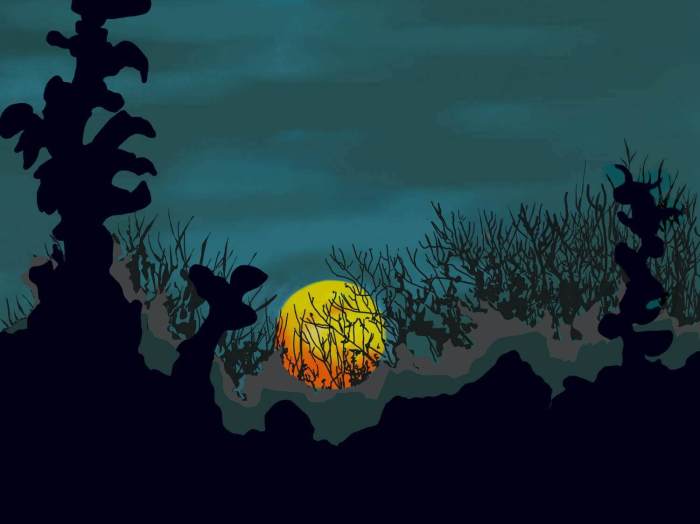Night by elie wiesel reading guide – Night by Elie Wiesel is a seminal work of Holocaust literature that has captivated readers for decades. This comprehensive reading guide delves into the novel’s profound themes, complex characters, and historical context, providing an indispensable resource for students, scholars, and general readers alike.
Elie Wiesel’s memoir recounts his harrowing experiences as a young Jewish boy imprisoned in Auschwitz and Buchenwald concentration camps during the Holocaust. Through his vivid prose, Wiesel explores the depths of human suffering, the fragility of faith, and the enduring power of memory.
Character Analysis
Eliezer’s relationship with his father is a central theme throughout the novel. Initially, Eliezer admires his father’s piety and unwavering faith. However, as the horrors of Auschwitz unfold, Eliezer witnesses his father’s suffering and gradual loss of faith. This challenges Eliezer’s own beliefs and forces him to confront the limits of human endurance.
Transformation of Eliezer’s Character, Night by elie wiesel reading guide
Throughout the novel, Eliezer undergoes a profound transformation. Initially, he is a devout and innocent boy. However, the atrocities he witnesses in Auschwitz strip him of his faith and innocence. He becomes hardened and cynical, struggling to find meaning in a world that seems devoid of it.
Role of Moshe the Beadle
Moshe the Beadle is a significant character who shapes Eliezer’s understanding of the Holocaust. Moshe is a Holocaust survivor who warns the Jews of Sighet about the Nazi threat. However, his warnings are ignored, and he is eventually deported to Auschwitz.
Moshe’s experiences serve as a foreshadowing of the horrors that await Eliezer and his fellow prisoners.
Themes
Faith and Adversity
The theme of faith and its challenges in the face of adversity is central to Night. Eliezer’s faith in God is tested throughout the novel as he witnesses the horrors of Auschwitz. He struggles to reconcile the existence of a benevolent God with the suffering he sees around him.
Dehumanization
Dehumanization is a pervasive theme in Night. The Nazis systematically strip the prisoners of their humanity, treating them as mere numbers and objects. This dehumanization has a profound impact on the prisoners, both physically and psychologically.
Memory and Witnessing
Eliezer’s story is a powerful reminder of the importance of memory and witnessing. By sharing his experiences, Eliezer bears witness to the horrors of the Holocaust and ensures that the victims are not forgotten.
Historical Context

The Holocaust
The Holocaust was the systematic genocide of approximately six million Jews by the Nazi regime during World War II. The Nazis believed that the Jews were inferior and sought to exterminate them through a variety of methods, including gas chambers, mass shootings, and medical experiments.
Eliezer’s Internment in Auschwitz
Eliezer was deported to Auschwitz in 1944, along with his father and the rest of the Jewish population of Sighet. Auschwitz was the largest and most notorious Nazi concentration and extermination camp, where over one million people were murdered.
Anti-Semitism
Anti-Semitism, the hatred or prejudice against Jews, played a central role in the rise of Nazism. The Nazis used anti-Semitic propaganda to demonize Jews and justify their persecution.
Literary Devices: Night By Elie Wiesel Reading Guide
Symbolism and Imagery
Wiesel uses powerful symbolism and imagery throughout Night. For example, the darkness and cold of Auschwitz represent the horrors and despair that the prisoners experience. The prisoners’ striped uniforms symbolize their dehumanization.
Structure and Narrative Style
Nightis a fragmented and non-linear narrative. This structure reflects the chaotic and traumatic nature of Eliezer’s experiences. The novel is written in a simple and direct style, which amplifies the impact of the events it describes.
Irony and Foreshadowing
Wiesel uses irony and foreshadowing to create a sense of foreboding and to highlight the absurdity of the Holocaust. For example, the prisoners are forced to sing cheerful songs as they march to the gas chambers.
Cultural and Ethical Implications

Relevance to Contemporary Society
Nightremains a relevant and important novel today. It reminds us of the dangers of prejudice, hatred, and intolerance. It also challenges us to reflect on the ethical implications of the Holocaust and to work towards a more just and equitable world.
Ethical Implications
The Holocaust raises profound ethical questions about the nature of good and evil, the responsibility of individuals, and the limits of human endurance. Nightforces us to confront these questions and to grapple with the moral implications of the Holocaust.
Fostering Empathy and Understanding
By sharing Eliezer’s story, Wiesel hopes to foster empathy and understanding among readers. He believes that by learning about the Holocaust, we can better understand the dangers of prejudice and work to prevent similar atrocities from happening again.
Answers to Common Questions
What is the significance of Eliezer’s relationship with his father in Night?
Eliezer’s relationship with his father is a central theme in the novel. It represents the bond between father and son, the loss of innocence, and the struggle to maintain faith in the face of unimaginable suffering.
How does Eliezer’s character transform throughout the novel?
Eliezer undergoes a profound transformation throughout the novel. Initially a devout and innocent boy, he gradually loses his faith and becomes hardened by the horrors he witnesses. However, he ultimately emerges from the experience with a renewed sense of hope and a determination to bear witness to the atrocities he has endured.
What is the role of Moshe the Beadle in shaping Eliezer’s understanding of the Holocaust?
Moshe the Beadle is a mysterious and enigmatic figure who warns Eliezer of the impending danger facing the Jewish community. His stories and experiences foreshadow the horrors that Eliezer will later encounter, and they play a crucial role in shaping his understanding of the Holocaust.